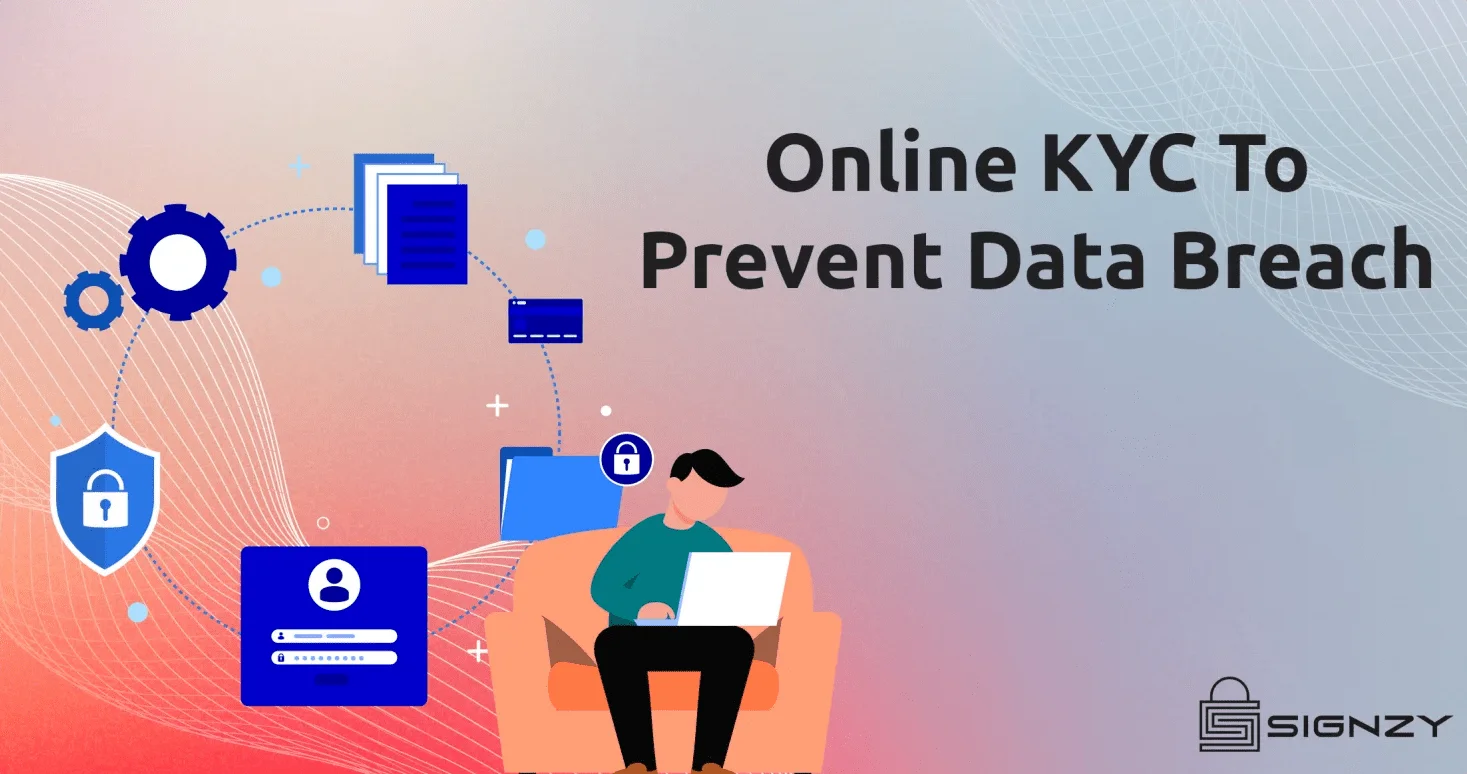According to IBM, the typical cyberattack costs $3.86 million, and it takes 280 days to discover and contain. Additionally, the market for basic cybersecurity worldwide will be worth $403 billion by 2027, growing at a 12.5% compound yearly growth rate. For the longest time, KYC in all forms (including Online KYC) and basic cybersecurity have operated as independent fields. Protecting businesses against external threats like antivirus software, firewalls, etc., has been referred to as cybersecurity. However, the KYC process has been incorporated into the company’s client onboarding procedure to guarantee that the new user is qualified after passing the security tests.
Another effect of the coronavirus outbreak is the fusion of Online KYC and basic cybersecurity. Online businesses proliferated when lockdowns confined individuals inside of their homes. But regrettably, it also puts daily life subject to cyber attacks. Since the pandemic breakout, 71% of IT and security experts worldwide have noticed increased security risks and attacks.
Here are 4 things to understand about the use of Online KYC in basic cybersecurity.
1. What Exactly Is The KYC Process?
In the global economy, financial institutions are more exposed to criminal activity than ever before. Know Your Customer (KYC) guidelines have been developed to safeguard financial institutions from fraud, corruption, money laundering, and financing of terrorism.
KYC is used in the following:
- Determining the identity of the customer
- Recognizing the kind of activities that customers engage in
- Make sure the money is coming from a reliable source.
- Evaluating the danger of money laundering
Business owners have traditionally valued KYC Processing. It used to be required for regulated companies, but since technology has evolved and the bulk of services are now provided online, it has become increasingly important for every company. It serves as the customer’s first point of identification because it includes biometric data like fingerprint, IRIS, and face. They make sure to verify uniqueness before offering any services as a result.
2. KYC and Basic Cybersecurity?
Businesses reported fraud-based losses resulting from account opening and account takeover in 57% of cases. It indicates that cyber dangers are gaining access to KYC procedures and that further security measures are necessary. Businesses currently provide safe Online KYC solutions for increased cybersecurity.
Facial liveness solutions that employ artificial intelligence and machine learning technology to provide a failsafe verification process are assisting in preventing fraud. Today, the same can be done with a selfie or fast video chat, contrary to earlier perceptions that it was impossible to do facial liveness checks without physical verification. As a result, social media networks can use such technologies to stop cybersecurity frauds.
3. Online KYC’s Role In Ensuring Seamless Identity Checks
Companies and enterprises can choose to integrate ML algorithms and Online KYC APIs easily. They are simple to integrate into any organization’s primary business applications. It makes it possible for verified consumers to be onboarded and for the customer experience to be smooth. In addition, document validation uses AI and ML technology.
Technologies like document verification and optical character recognition (OCR) extraction are also emerging. They provide the businesses the authority to collect altered photographs. Similar to how OCR software identifies, extracts, and assembles letters into words and phrases from an image. Additionally, it is advantageous against data breaches.
4. What Can Governments Do?
Governments can actively assist businesses by assisting with consumer identity checks. Unique IDs, like the Aadhaar cards used in India, are one such method. Governments’ readiness to give necessary APIs to the private sector, where possible, can ensure that KYC processing is completed in addition to setting up Unique IDs. Additionally, it will help to eradicate cybersecurity fraud and data breaches.
Conclusion
Nowadays, Online KYC can be completed quickly and affordably thanks to contemporary technology, which also improves cybersecurity. At the moment, Online KYC and basic cybersecurity coexist in the same world. Companies are now asking pertinent questions about cybersecurity due to the post-pandemic shift in the security paradigm. They want to integrate seamless and secure operations to maintain their customers, data, and reputation. Never let your guard down as a corporation, and keep an eye out for technological solutions that guarantee cybersecurity during the Online KYC processes.
About Signzy
Signzy is a market-leading platform redefining the speed, accuracy, and experience of how financial institutions are onboarding customers and businesses – using the digital medium. The company’s award-winning no-code GO platform delivers seamless, end-to-end, and multi-channel onboarding journeys while offering customizable workflows. In addition, it gives these players access to an aggregated marketplace of 240+ bespoke APIs that can be easily added to any workflow with simple widgets.
Signzy is enabling ten million+ end customer and business onboarding every month at a success rate of 99% while reducing the speed to market from 6 months to 3-4 weeks. It works with over 240+ FIs globally, including the 4 largest banks in India, a Top 3 acquiring Bank in the US, and has a robust global partnership with Mastercard and Microsoft. The company’s product team is based out of Bengaluru and has a strong presence in Mumbai, New York, and Dubai.
Visit www.signzy.com for more information about us.
You can reach out to our team at reachout@signzy.com.
Written By:

Signzy
Written by an insightful Signzian intent on learning and sharing knowledge.



